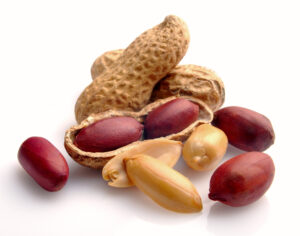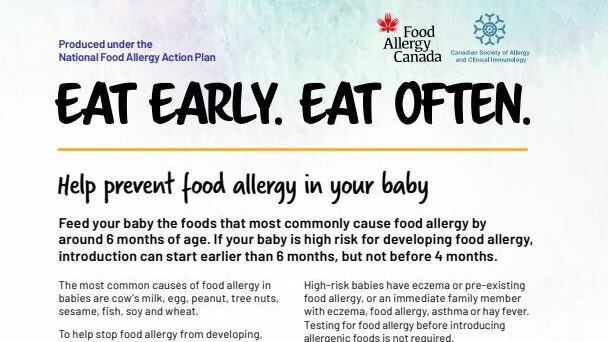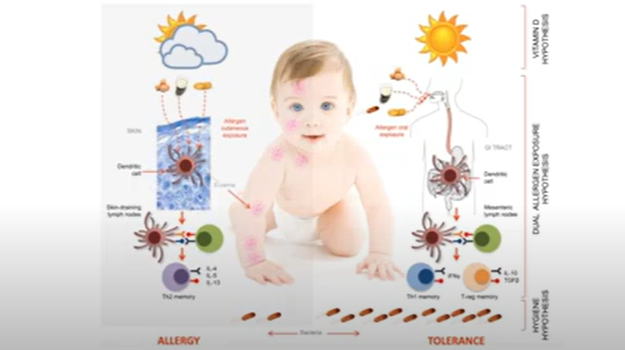Find out how you can participate in research opportunities – one for children with peanut allergy and another for children with tree nut allergy. Plus, read about new research supporting the introduction of peanut to babies to help prevent peanut allergy into adolescence.
Research study: Call for participation for children with peanut allergy

A research study is underway across North America. They are seeking children aged 4-7 years who have been diagnosed with peanut allergy and are currently following a strict peanut-free diet.
The study is testing an investigational drug patch to learn how well it works and how safe it is in children with peanut allergy. The purpose of the patch is to potentially desensitize a person with peanut allergy by repeated exposures to very small amounts of peanut via the skin.
Read additional details about the study from the research team, and for a listing of the Canadian study sites. You can also visit VitesseAllergyStudy.com for more details and view their FAQ sheet.
Please share with others whose children have peanut allergy.
Research study: Call for participation for children with tree nut allergy

A research study is underway in Hamilton, Ontario. The researchers are seeking children aged 1-16 years who have been diagnosed with tree nut allergy, specifically to cashew, pistachio, walnut, pecan, almond, or hazelnut.
The study is testing different immunotherapies to desensitize a person with tree nut allergy by repeated exposures to very small amounts of tree nut through sublingual immunotherapy (SLIT) or low-dose oral immunotherapy (IdOIT). SLIT is when a food allergen is placed under the tongue and OIT is when a food allergen is eaten.
Food Allergy Canada is involved in this research through a patient/caregiver partnership where we provide input on the design of the research, review research outcomes, and ensure the patient perspective is considered.
Read additional details about the study from the research team. To learn more about the study and if your child is eligible to participate, complete this form or email eia@mcmaster.ca.
Please share with others whose children have tree nut allergy.
Research: Introducing peanut in infancy can help prevent peanut allergy into adolescence

Compared with avoiding peanuts, starting peanut consumption in infancy and continuing to age five was associated with a 71% reduced rate of peanut allergy among adolescents, according to a new study.
The new research findings come from the LEAP-Trio study, which builds on the results from the Learning Early About Peanut Allergy (LEAP) study and the subsequent LEAP-On study, both sponsored and co-funded by the National Institute of Allergy and Infectious Diseases (NIAID). Read the NIAID news release.
Canadian guidance on the early introduction of allergens
The current guidance is to feed a baby the foods that most commonly cause food allergy (e.g., peanut) by around 6 months of age. If a baby is high risk for developing food allergy, introduction can start earlier than 6 months, but not before 4 months. Babies should be developmentally ready for solid foods.
Remember, once a baby has eaten the food, and if there is no allergic reaction, it’s very important to keep feeding that food to a baby regularly.
Resources for you
Check out these resources below, including our popular “Eat Early. Eat Often.” resource, short videos from Brock Williams, RD and PhD candidate in UBC’s Faculty of Land and Food Systems, and our recorded webinars presented by paediatric allergists involved in the prevention of food allergy guidance.
 Introducing allergenic foods
Introducing allergenic foodsWatch these short videos on best practices for safely introducing allergenic foods. It’s ideal to watch the videos in order.


